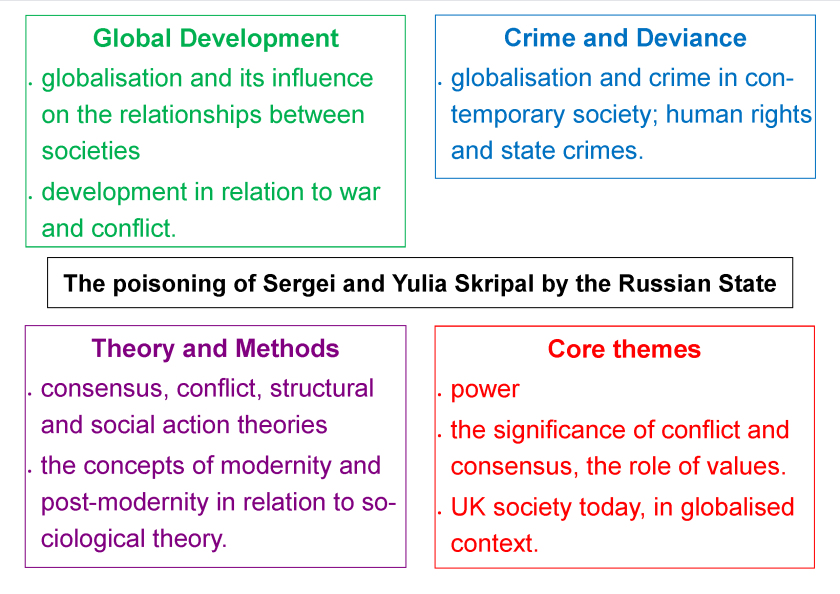In Mach 2019 senior police chiefs wrote to Theresa May. They argued that there was a link between the increase in the number of formal school exclusions and ‘off-rolling’. Off-rolling is where heads informally get parents to withdraw their children, without them being formally recorded. Thus they are not recorded as ‘permanently excluded’.
The theory is that the off-rolled are more likely to ‘drift’ because they will ne cared for less effectively. It is also more difficult to monitor them because they probably won’t be in alternative provision institutions. The problem is believed to be especially bad for those who are off-rolled. When a pupil is off-rolled, the parents are responsible for finding alternative provision. It is these kids who are much more likely to end up out of education altogether.
While this is an interesting theory, it remains difficult to assess whether there is a relationship between these variables!
Criticising the relationship between school exclusions and knife crime
Numerous commentators have criticised the police for suggesting there is a causal link between exclusions and knife crime. A summary of nine of these criticisms is provided below, with links where possible!
Firstly, there is not a clear correlation between the increase in FORMAL school exclusions and the increase in knife crime:
Trends IN SCHOOL exclusions
School exclusions were level from 2016-17 to 2018-19 while knife crime increased during the same period.
trends in Knife crime
Granted, there is a correlation between exclusions and knife crime in the next two years.
HOWEVER, correlation doesn’t necessarily mean causation, and there is very good reason to think that this is the case here. 2020-2022 were the covid affect years. Thus there was less and then slightly more of pretty much everything, because of lockdown and then lockdown ending!
What about off-rolling?
The above data only includes formal exclusions, not off-rolling, so we don’t get a full picture. It might be more likely that someone who is off-rolled turns to knife crime compared to someone who is formally excluded. The problem is there are no official statistics which show us the off-rolling. So this remains a very difficult topic to research.
This government report from June 2018 which examined the relationship between educational background and knife crime found that ‘knife possession rarely followed exclusion’.
Further problems with blaming school exclusions for knife crime
There may be another cause behind both ‘being excluded from school’ and ‘being convicted of knife crime’. However, the real causes may be abuse or neglect further back in the past.
It is unfair to blame schools for excluding children in greater numbers as they have suffered Tory funding cuts. Schools run education programmes against knife crime, but these are less effective because there is less money to spend on them.
The fact that someone has previously been excluded from school may make it more likely that they are going to get a knife-crime conviction. Being excluded from school puts you on the police radar and doesn’t sit well with judges and juries. It could be that there are proportionally just as many people who have not been excluded from school who commit knife crime, but they just don’t appear in the official statistics because they are less likely to get caught and convicted.
Back to underlying causes, it’s possible that a ‘deeper’ reason lying behind why people who are excluded from school are also more likely to appear in the knife crime conviction figures is because they are victims of discrimination by the system – males, the poor, and African Caribbean children are more likely to appear in both the exclusion figures and the knife rime conviction figures – it could be that both are caused by a sense of injustice at being excluded in the first place.
The stats available to us tell us nothing about the life-histories, or the journies people take from being excluded (or not) to knife-crime. This could be a more complex few years than we imagine, and these possibly diverse journies are simply not going to be unveiled by crude statistical analysis. The data simply isn’t there!
Finally, there are number of other variables that cause knife crime to increase – the changing nature of drug-dealing (county lines), and cuts to police funding come to mind as being two of the most obvious. These would somehow need to be factored in to any ‘causal’ equation.
Conclusions
In conclusion it’s a well-known mantra in sociology that correlation does not mean causation, and this particular topic is a great one to use to illustrate this.
To my mind there are so many problems with maintaining the causality argument here that the only possible reason anyone would try to make it in the first place is to distract attention away from all the other social problems that correlate with the increase in knife crime – the kind of problems government policies either exacerbate or can do little to combat.
Relevance to A-level Sociology: this is a great topic that bridges education, methods and crime!
Sources not already linked above
Huffington Post – Don’t blame school exclusions for rise in knife crime
The Guardian – Knife crime and exclusions are a symptom of wider malaise.














 However, the mainstream media didn’t do such a great job of covering the findings of the research which was published months later, which suggested that the actual reasons the riots took place were, according to the rioters themselves: unfair treatment by the police, unemployment, government policies the shooting of Mark Duggan.
However, the mainstream media didn’t do such a great job of covering the findings of the research which was published months later, which suggested that the actual reasons the riots took place were, according to the rioters themselves: unfair treatment by the police, unemployment, government policies the shooting of Mark Duggan.